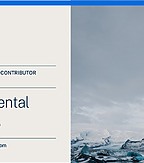Artikel | 26 oktober 2021
Solar PPAs in Sweden – Early Market Wisdoms

We would like to share a few wisdoms acquired from negotiations of several physical and virtual power purchase agreements concluded on the Swedish solar PV market.
In Sweden, long-time pro-renewable energy policies, favourable wind conditions and the availability of land and reliable grid structures have been driving the expansion of renewable energies. Above all, Sweden has witnessed an intensive build-out of large-scale onshore wind projects which frequently – together with hydropower as the base source – account for 60-75 per cent of Sweden’s national energy production.
Many different stakeholders and organisations are now advocating an intensified build-out of large-scale solar PV farms, especially in the south of Sweden which has similar conditions for solar power operation to those prevailing in northern Germany and Denmark. Electricity generated by large solar farms is considered to potentially constitute a suitable complement in the energy mix. According to the Swedish Energy Agency, electricity generation from solar power has the long-term capability of providing up to 10 per cent of the aggregate energy production in Sweden.
Despite the significant surge in interest, the market for large-scale solar power investments is still in its cradle in Sweden. In addition to developers having to battle challenges with securing grid connection and obtaining necessary permits and consents from sometimes reluctant and sceptical authorities, creating a financially viable business case is a complex exercise. For the past 18 months, many long-term power purchase agreements have been concluded regarding the largest solar PV farms in development in Sweden, primarily to secure future cash flows and thereby attract investors and obtain beneficial financing terms.
In this article, Setterwalls’ Johan Göransson and Jonas Frii share a few wisdoms acquired from negotiations of several physical and virtual power purchase agreements concluded on the Swedish solar PV market.
The rise of virtual PPAs and its associated complexities
Alongside traditional pay-as-produced structures with physical deliveries of energy, the option of virtual (often also referred to as synthetic) power purchase agreements (“VPPAs”) have up to now dominated the Swedish market. VPPAs, particularly prevalent in the US and essentially a financial derivative without physical deliveries, offer a price hedge against fluctuating spot prices for both parties, in addition to the sale and purchase of guarantees of origin. Before entering into discussions on a VPPA, developers and energy procurement managers need to be mindful that VPPAs can trigger specific accounting treatments and so careful deliberations together with accountants are often warranted. In addition, VPPAs trigger regulatory reporting obligations under applicable EU-wide finance regulations, the practical management of which need to be discussed between the parties at an early stage.
Right of first offer provisions
In an era when CSR work and active and visible participation in the green energy transition are becoming crucial to corporates, certain provisions that are restrictive to the developer are tending to find their way into power purchase agreements. Given the competiveness on the PPA market, experienced off-takers in particular are insistent on incorporating a right to first offer on a new or prolonged PPA, with the aim of being concluded during the period after the expiry of the original agreement term. In short, this restrictive covenant obliges the developer to first offer a new or prolonged PPA to the existing off-taker, before the developer may go fully-merchant or seek another PPA-counterparty on the open market. These provisions, especially if not drafted properly and in sufficient detail (particularly with regard to how the pricing structure is to be handled in the new or amended PPA), have occasionally caused concerns with third-party investors and external lenders using different forward-looking price projections (for both PPA and market prices) and potentially having factored merchant exposure after the initial PPA term into their models.
The importance of the balancing responsible party
Very simply expressed and from a contractual perspective, a PPA for physical deliveries of energy is a supply contract. To the extent that a third-party provider is appointed as balancing responsible party (“BRP”) for the energy facility, the BRP will play a crucial role in the physical supply chain of electricity. In our experience, especially if the producer and the off-taker have different BRP providers, the organisation and contractual regulation concerning the actual supply of electricity from the producer’s BRP to the off-taker’s BRP are underestimated and sometimes neglected. All electricity producing facilities in Sweden must have a BRP registered when the production of electricity commences. Unless such a BRP is procured in a structured manner and a BRP agreement signed before start of production, a BRP will be compulsorily designated to the facility, often on commercially unfavorable terms. As the delivery terms under physical PPAs tend to commence close to when the facility has started commercial operation, the work on establishing a BRP structure which also handles the physical deliveries under the PPA should be initiated early.
Credit support
PPAs often require the provision of external credit support, in particular when a party lacks a strong balance sheet and/or an official credit rating. The process of procuring credit support should not be underestimated. When many investment and pension funds are unable to provide credit support internally (e.g. in the form of parent company guarantees), third-party letters of credit are often the available option. At a time when KYC/AML processes are becoming increasingly more rigorous, procuring a letter of credit can be a time-consuming exercise. Consequently, the possibilities of procuring external credit support should be explored early in the negotiation phase of a PPA, in order to avoid delay in signing the PPA or delaying fulfilment of conditions precedent targeting the provision of credit support.
Setterwalls’ team
Setterwalls’ specialist group for Energy & Commodities has a market leading position in the Nordics and is ranked as Tier 1 by the major ranking institutes. Through our in-depth knowledge and experience of the energy industry gained from our participation in the largest and most complex energy transactions and environmental court proceedings in Sweden, combined with excellent relationships to the energy sector, we have the commercial credibility to help our clients to achieve their objectives and navigate in the complex energy market and political environment.


